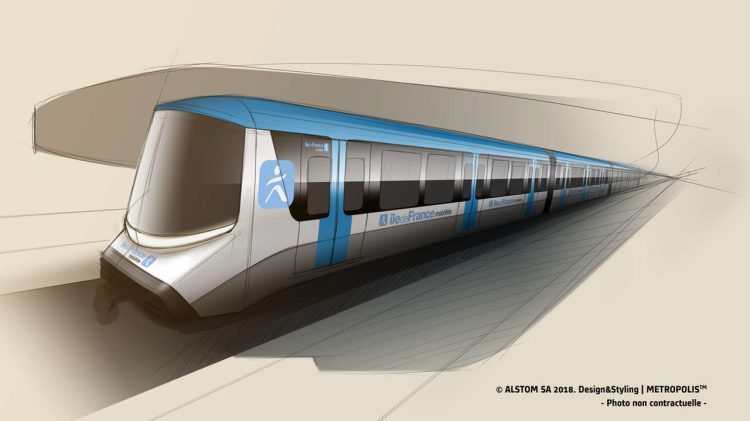A contract for the second section of Grand Paris Express Metro's line 17 has been awarded by Société du Grand Paris to a consortium between Colas Rail and Alstom, with Colas Rail leading the contract to supply the track, rigid overhead catenary system, and linear equipment.
When the line is complete, trains will take less than 25 minutes to travel the length of the 26.5 km line through 13 municipalities. There will be nine stations between Saint-Denis Pleyel and Le Mesnil-Amelot, making travel easier for nearly 565,000 inhabitants.

In the second section of line 17, the Colas Rail / Alstom consortium will supply and install 10 km of track, the rigid overhead catenary system, and the linear equipment between Le Bourget Airp[ort and Parc des Expositions located near Roissy. This section of line will include work in a tunnel, on embankments, and on a viaduct over 3 km. Up to 200 employees will be involved in the project, and the first work will start by mid-2024.
Awarding this contract to Colas Rail / Alstom consortium demonstrates Société du Grand Paris's confidence in the consortium and confirms their expertise in this type of integrated infrastructure contract. It also demonstrates both companies' ability to work together on multidisciplinary projects in railway equipment and systems.
Colas and Alstom have previously worked together on several significant projects including the southeast section of the Grand Paris Express line, tramways in Reims, Nice, and Bordeaux, and the Nimes-Montpellier high-speed line bypass. They have also recently won a contract to supply an integrated rail system to extend the North-South Commuter Railway (NSCR) project in the Philippines.
During construction, particular attention will be paid to environmental and social impacts, such as limiting greenhouse gas emissions by using low-carbon concrete made from cement produced by reducing energy consumption, and rolled rails made from steel produced from a low energy-consumption process.
Other initiatives include using electric vehicles, LEDs for tunnel lighting, treating rainwater, and establishing a treatment and recycling station for residues from the tracks' concrete.
To promote employment opportunities, the site will facilitate access to training for young people through apprenticeship contracts, work-study programmes and internships at all levels including training for workers, supervisors and engineers. To promote professional inclusion on site, a large proportion of the labour hours will be reserved for people on long-term unemployment. In addition, a percentage of the supply of work and systems will be reserved for VSEs and SMEs.